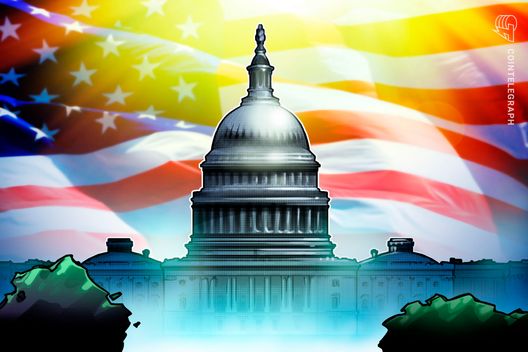
American Republican MPs and President Donald Trump were able to overcome inter-bird disputes to pass three crypto bills last week, but some laws still have a way to go before the law is still going on.
Last week, after two long sessions in the House, on Thursday, all 12 Republicans and more than 100 Democrats voted on the guide and established a national innovation for the US Stabecrims (Genius) Act, a bill to regulate the payment stabecoin, which Trump signed in the law after about 24 hours.
The other two bills, the Digital Asset Market Clarity (Clarity) Act and the Anti-CBDC (Central Bank Digital Currency) Monitoring State Act, will be prominent for consideration for the state act, because the two chambers are ready to break for a August holiday.
Three Bills were part of the Republican’s “Crypto Week” initiative, claiming urgency in establishing regulatory clarity for aspects of the digital asset industry.
Some Republican MPs have tried to make their efforts a brand as a “non-party” or bipartisan. The overwhelming majority of the audience signing the Genius Act were members of his party or otherwise associated with Trump, while some democrats bring Trump’s possible conflicts in the debate on bills associated with their crypto undertakings. It suggested that the law may still face arguments from Senate Democrats on the remaining two bills.
The Senate Republican is expected to address the first crypto market structure. The Bill will formulate rules for regulators such as Securities and Exchange Commission (SEC) and Commodity Futures Trading Commission (CFTC) and will distinguish which tokens are qualified as securities under American law.
Connected: Crypto executed the US Stabecrim bill after Thursday’s vote
Clarity comes first, and CBDCS second?
On Tuesday, four Republican Senators released a discussion of their version of a crypto market structure bill, stating that the “clarity act” creates. Law temporarily suggested the House’s efforts to establish a crypto market structure can be slightly higher than that running a test for the Senate bill to establish a crypto market structure.
Whether the Clarity Act or the responsible Financial Innovation Act is close to the final product desired by the Republican, either the bill will have to undergo both chambers for air at Trump’s desk.
https://www.youtube.com/watch?v=Q980_6djfyu
The Anti-CBDC bill faces similar challenges. Only two Democrats biased with Republican to approve the bill in the House. Reports also suggested that many Republicans have put the initial vote on the three bills on concerns that the Genius Act word can allow a back door for an American digital dollar.
Vyaming Senator Synthia Lumis is also the chairman of the banking committee’s digital assets subcommittee Proposed The Senate remains in the session through the Senate August to address some of Trump’s nominations.
A senator spokesman said that she would also help in “executing the President’s agenda” during that time, indicating that she could also use time for markup preparation on two bills.
CFTC still faces staffing issues
The Crypto Bill and the Congress were expected to break up for the August holiday in a few days amidst all the discussions with MPs, the Senate has so far voted to preside over CFTC on the nomination of Brian Quintage.
Reports suggested A Republican Senator was absent from a scheduled Monday committee meeting, which was forced to lead a vote on Quintage.
A spokesperson of the Senate Agricultural Committee Chairman John Buzmann meeting to consider the nomination of Quintage, saying the Coinlagf Republican expects a vote with party lines. However, the committee planned to vote on the potential CFTC president before the August holiday.
Only two commissioners, acting president Caroline Phel and Christin Johnson, were serving in CFTC at the time of publication. Both are expected to depart the agency before 2026 after a possible confirmation of Quintage by the Senate, potentially vacated four leadership seats.
magazine: The Genius Act opens the door again for a meta stabechoin, but will it work?


